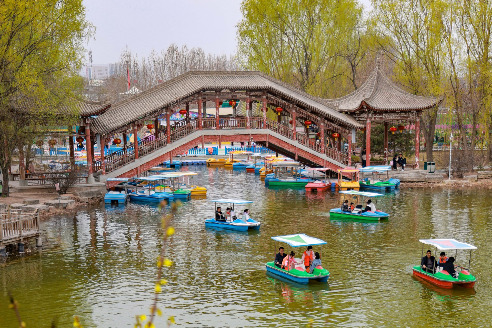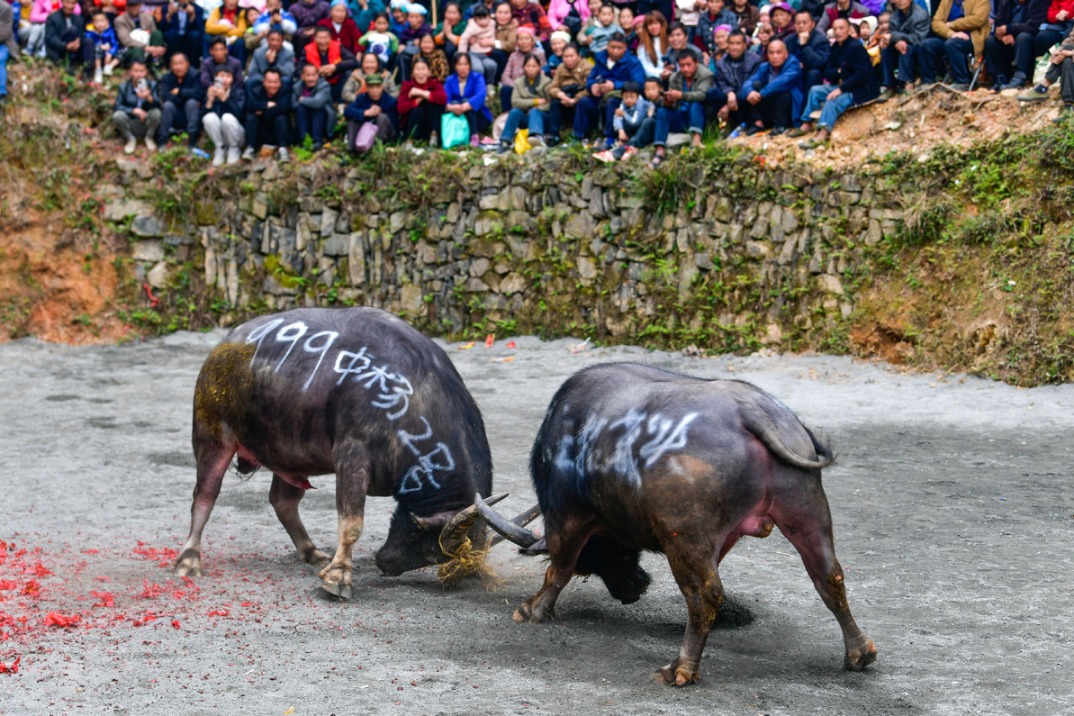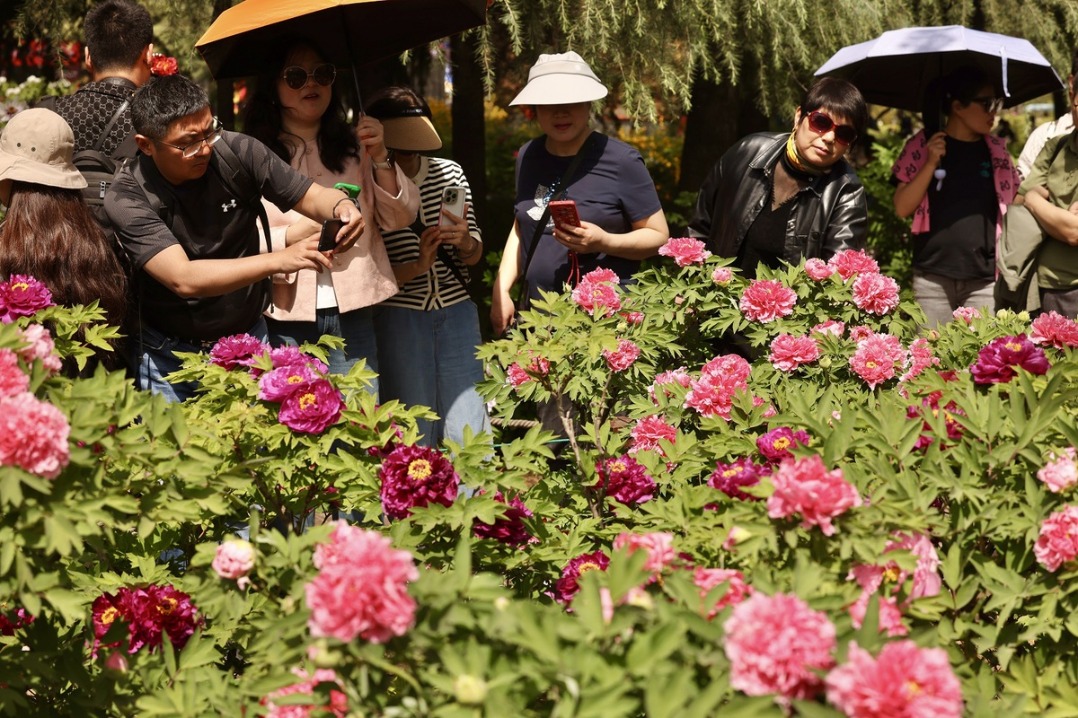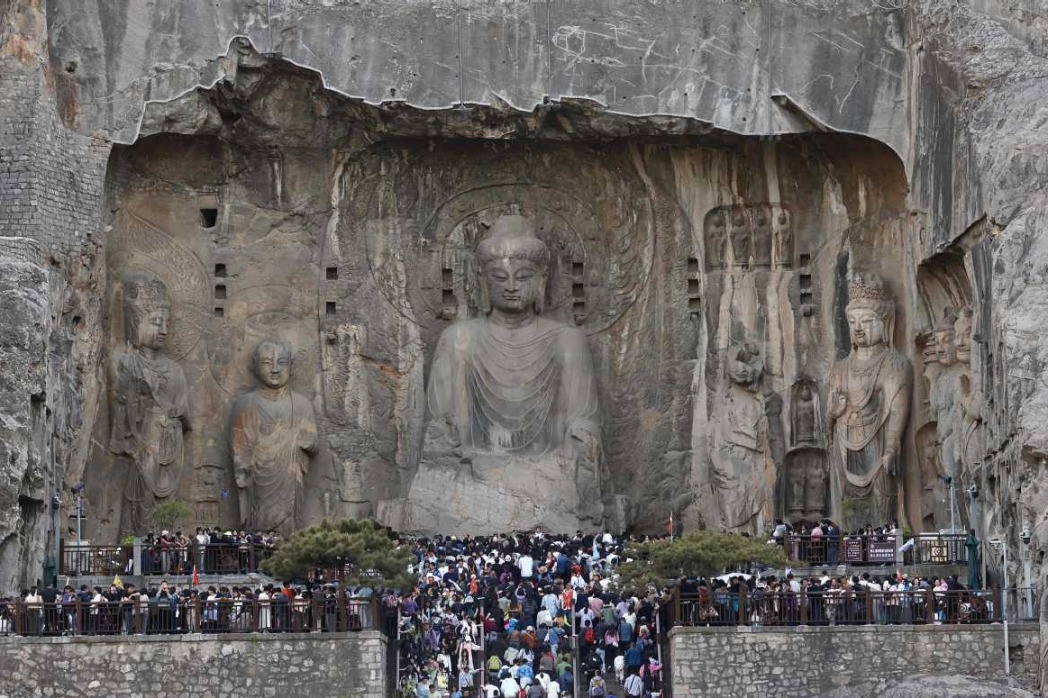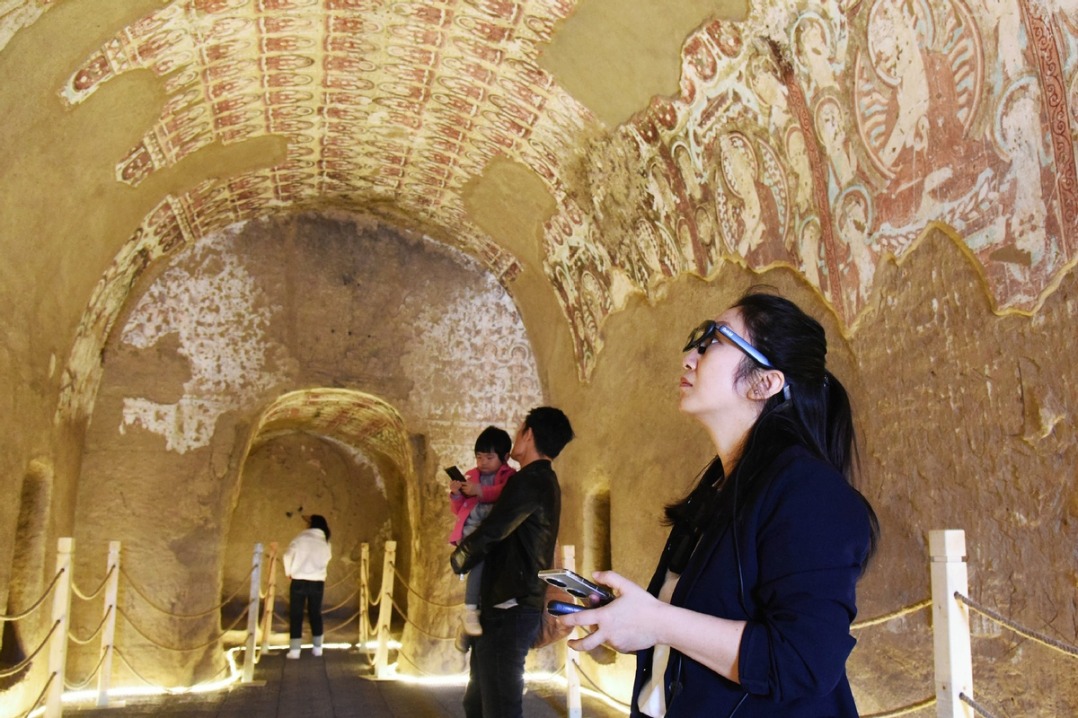Tourists hit peak stride, thanks to high tech

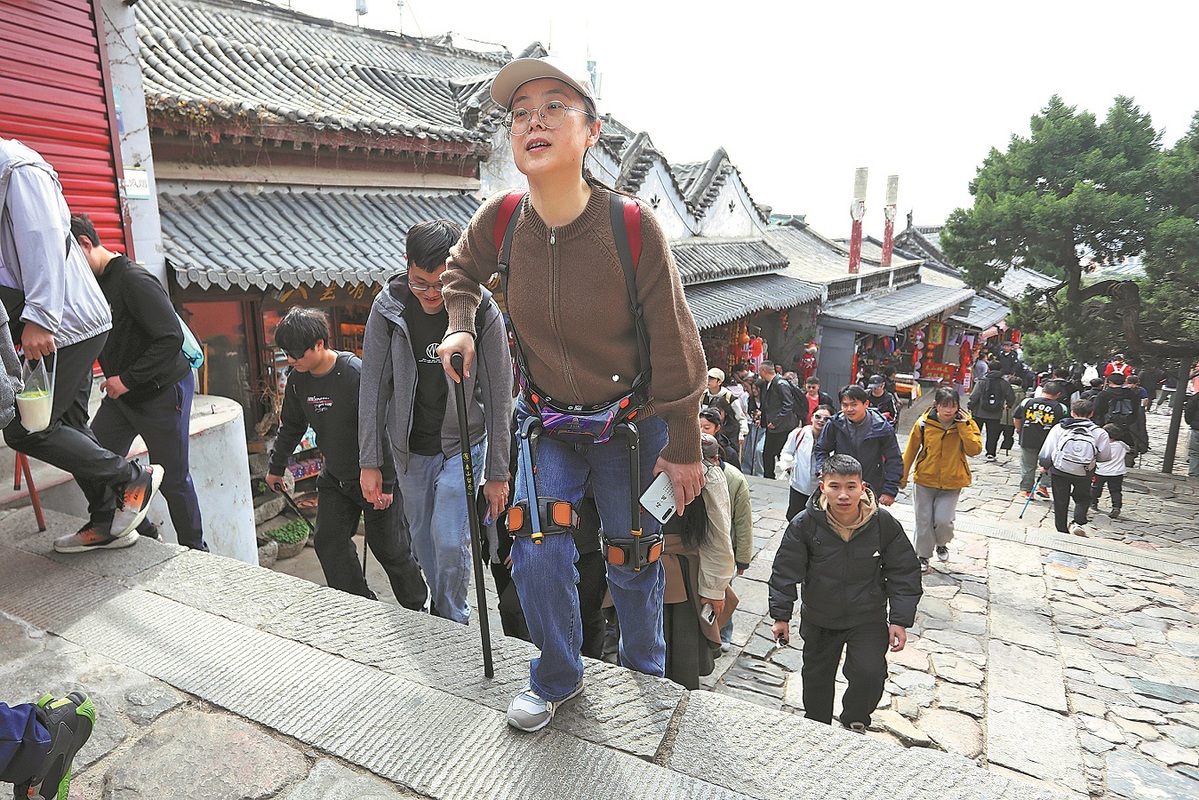
Robotic exoskeletons powered by artificial intelligence became good partners for Chinese tourists on their way to conquering towering mountains during the just-concluded Qingming Festival holiday, with the auxiliary equipment epitomizing China's progress in developing "smart tourism".
During the three-day break, which ended on Sunday, the tourism sector showed strong performance, although the holiday is not traditionally a busy season for the industry.
The latest figures from the Ministry of Culture and Tourism showed that domestic attractions recorded about 126 million tourist visits during the holiday, marking year-on-year growth of 6.3 percent. The visits generated consumption of about 57.5 billion yuan ($7.9 billion), a 6.7 percent increase year-on-year.
At the Taishan Mountain tourism area in East China's Shandong province, some visitors chose to get in long lines to rent "robotic legs", rather than ascend to the top by themselves. The mountain's peak stands at a height of more than 1,500 meters, and scaling it requires over 7,000 stairs.
Li Gang, head of Taishan Cultural Tourism Group, told the Shanghai-based news outlet The Paper on Sunday that the robotic device had been in short supply during the holiday, and many travelers waited in line for two hours to rent it. The Taishan Mountain tourism site introduced 10 AI-powered robotic exoskeletons in January and plans to expand the number to 500 by around May.
Fees for using the robotic device are charged per hour or according to travel routes, with the amount typically being 80 yuan for three hours. By using the device, the time required to conquer a steep section of Taishan Mountain's main peak can be halved from the usual three hours, said Li.
Yan Lidong, 26, from Beijing, who wore the robotic device on his way to the summit of the Taishan Mountain during the holiday, said: "I don't want my legs turning into jelly. One of my friends made up his mind to climb to the top in October but fell by the wayside, and he told me that he lay on the bed for two days with his legs shaking like jelly."
The Shandong mountain is not the only tourism spot turning to the high-tech auxiliary equipment to improve the experience of travelers. Huangshan Mountain in East China's Anhui province will offer the public smart knee straps and walking sticks later this month, according to Huangshan Daily. These two auxiliary devices, as well as robotic exoskeletons, have been in trial use at the Huangshan Mountain tourism spot since February.
"High-tech auxiliary devices like robotic legs have not only given travelers an easier mountain-climbing experience during the Qingming Festival holiday, but have also increased travelers' sense of wonder about new technology," said Wei Changren, founder of btiii.com, a tourism-related financial news website.
The travel portal Tuniu said that some AI-powered products and novel tourism services can pique the interest of people, especially young people, about exploring the tourism sites.
Wei added that the popularity of robotic exoskeletons during the Qingming Festival holiday is among the encouraging signs that China is pushing forward the development of "smart tourism", with the aim of satisfying people's diversified spiritual and tourism demands and shaping tourism into a pillar industry.
"Years ago, smart tourism focused on figuring out basic tourism problems, such as covering tourism spots with clear and smooth cellphone signals and Wi-Fi, but the focus has shifted to the use of smart devices with the advancement of AI technologies," he said.
China's "smart tourism" revenue increased to about 1.04 trillion yuan in 2023 from 432.9 billion yuan in 2019, according to a report published in November by the China Academy of Information and Communications Technology. The market was expected to have reached 1.25 trillion yuan in 2024, up 20 percent year-on-year, the report said.
Chinese people usually offer tribute to the dead, pay respects to their ancestors and make ritual offerings during Qingming Festival, or Tomb Sweeping Day.
This year, however, short-distance tours featuring spring blossoms and other spring scenery, as well as hiking along scenic routes or climbing mountains, were popular choices, according to tourism companies.
- Tourists hit peak stride, thanks to high tech
- Protecting rare animals through the lens
- China shuts down web accounts for vulgar content, celebrity gossip
- China sees first decline in noncompliance with court rulings in a decade
- Shanxi's school meal fraud exposed, prompting major reforms
- 100,000 visitors attend Tianjin University's 2025 Crabapple Blossom Festival
















